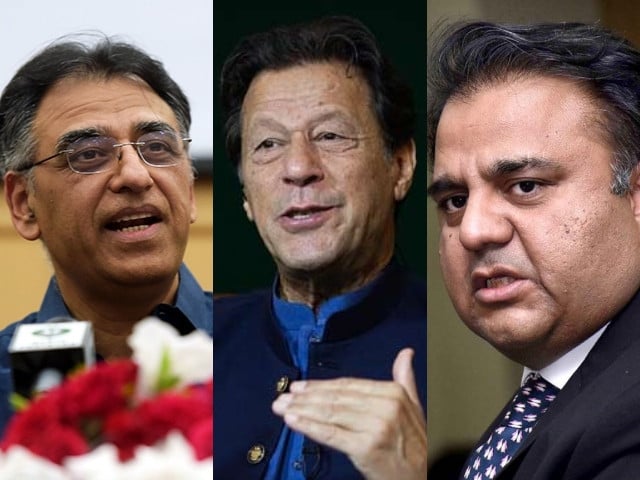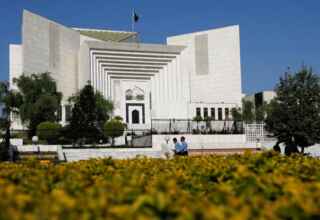
ISLAMABAD, Jan 4 (EW): The Election Commission of Pakistan (ECP) on Tuesday gave the last chance to Pakistan Tehreek-e-Insaf leaders including its chairman Imran Khan, Asad Umar and Chaudhry Fawad Hussain, to appear before it in the contempt proceedings case, warning arrest warrants against the three would be issued if they failed to comply with the order.
The development came as the Supreme Court, in its detailed order, allowed the poll supervisor to continue its contempt proceedings against the top PTI leadership but without passing any judgement.
A four-member bench of the ECP headed by Member Sindh Nisar Durrani heard the contempt case against the PTI leaders.
Syed Ali Bukhari appeared as assistant counsel for Imran and Fawad, while Asad Umar’s lawyer Anwar Mansoor also appeared before the polls supervisory body.
Bukhari said that Imran could not appear before the ECP due to health issues while Fawad’s mother was “critically ill” and was admitted to a hospital.
He requested the ECP to grant exemption to the two PTI leaders from appearance.
Umar’s lawyer maintained that the PTI secretary general did not come because he had missed his flight.
Durrani asked Imran’s counsel to present the PTI chief’s medical certificate and pointed out that the case continued since September.
The bench directed that Imran, Umar and Fawad appear before it on January 17, warning that arrest warrants would be issued against them if they failed to follow the order.
SC order
The Supreme Court has allowed the Election Commission of Pakistan (ECP) to continue contempt proceedings against PTI Chairman and former premier Imran Khan and party leaders Asad Umar and Fawad Chaudhry in cases related to contempt against the polls supervisory body.
A three-member bench led by Chief Justice of Pakistan Umar Atta Bandial and comprising Justice Athar Minallah and Justice Ayesha Malik issued the written order on the ECP appeals which were heard by the apex court on December 6.
The ECP had issued contempt notices to the former premier as well as other party leaders including Umar and Fawad in August and September last year for issuing statements against the election supervisor and its chief.
The election supervisor had asked the PTI leaders to appear in person or through their lawyers before the commission to explain their position.
However, the PTI members did not appear before the ECP and challenged in high courts the polls supervisory body’s notices and contempt proceedings maintaining that Section 10 of the Elections Act 2017, which is the statutory provision regarding the commission’s power to punish for contempt, was against the Constitution.
The apex court in its written order, maintained that the ECP should continue its contempt proceedings against the PTI leaders and urged the commission to take decision on the objections raised by the former ruling party against the polls supervisor body in accordance with law.
The Supreme Court stated that no high court had stopped the ECP from proceedings, adding that the Sindh and Lahore high courts only stopped the commission from issuing a final verdict. It furthered that the Election Act empowered the ECP to take action.
The SC order stated that although the PTI had challenged the section of authorising action, the implementation of existing law could not be stopped even if it was challenged.
The ECP had challenged the stay orders issued by the high courts in the apex court.







